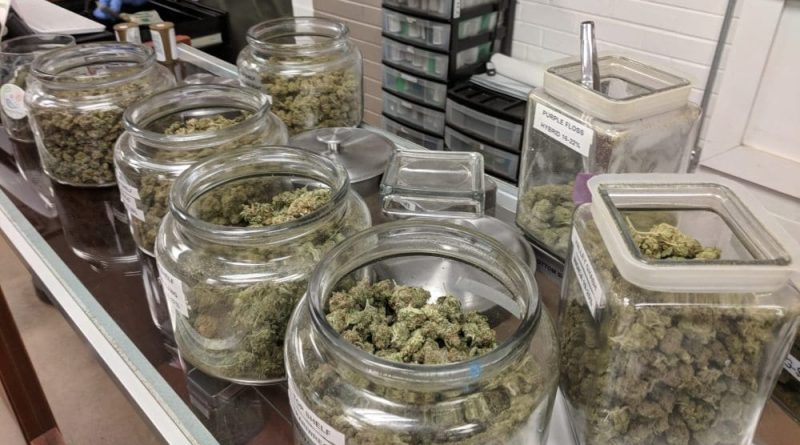Ohio Adults Can Now Buy More Than Double The Amount Of Legal Marijuana Per Day Than They Could Previously
From toxifillers.com with love
Ohio adults 21 and older can now buy more than double the amount of marijuana per day than they were previously permitted under the state’s voter-approved legalization law.
Effective Wednesday, adults are now able to purchase up to 2.5 ounces of flower cannabis per day—a significant increase compared to the prior daily transaction limit of one ounce. This will make it so consumers could buy marijuana in an amount that matches the 2.5 ounce possession limit under state statute.
This comes after the Ohio Division of Cannabis Control (DCC) determined that the cannabis market can sustainably supply both medical marijuana patients and adult consumers.
“Since non-medical cannabis sales began in August 2024, the market has demonstrated the ability to support both medical marijuana patients and non-medical consumers alike,” the division said late last month.
“At this time, when calculating 2.5 ounces of plant material, the only approved form that may be applied to the 2.5 ounces of cannabis plant material is dried cannabis plant material for vaporization,” DCC’s notice says. “All other products apply towards the non-medical consumer’s cannabis product limitation of 15,000mg of total THC content.”
A Department of Commerce spokesperson told Marijuana Moment on Tuesday that “back when the non-medical program came online, there were lower limits on non-medical sales, which was primarily to help ensure there was an adequate supply for medical patients.”
“A subsequent review of the available inventory data supports this increase adjustment up to the statutory limits identified in the statute,” they said.
The purchase limit for medical cannabis patients will not change under the updated guidance. Patients and caregivers can continue to buy up to a 90-day supply of marijuana for medical purposes.
If a retailer decides to raise its daily transaction limit for adult consumers in accordance with the guidance, the licensee must first submit a “Change of Operation” request to DCC.
The division has also revised rules to remove a requirement for dispensaries to track adult-use cannabis purchases as “whole day units,” but they must continue to do so for medical marijuana sales.
This comes as Ohio lawmakers consider controversial legislation to significantly alter the state’s voter-approved legalization law, drawing sharp criticism from advocates and stakeholders at a House committee hearing last month. Advocates have said the efforts represent an attempt to undermine the will of voters.
—
Marijuana Moment is tracking hundreds of cannabis, psychedelics and drug policy bills in state legislatures and Congress this year. Patreon supporters pledging at least $25/month get access to our interactive maps, charts and hearing calendar so they don’t miss any developments.![]()
Learn more about our marijuana bill tracker and become a supporter on Patreon to get access.
—
Among other provisions, the House bill would limit THC in cannabis products to 70 percent and prevent state regulators from adjusting or eliminating THC limits. Regulators also could not approve any new forms of adult-use marijuana under the bill.
It would further cap the number of active dispensaries statewide at 350, while rerouting some tax revenue away from local governments that allow cannabis businesses to operate in their jurisdiction. In March, a survey of 38 municipalities across the state found that localities are “unequivocally opposed” to those proposed changes to tax revenue allocation.
A separate Senate bill to amend Ohio’s marijuana law, cleared a Senate floor vote in February on a 23–9 vote and is now awaiting action in the House. In addition to many of the same restrictions in the House bill, that measure would also pare down the allowed homegrow limit from 12 plants to six.
A budget measure from Gov. Mike DeWine (R) is also a potential vehicle for changes to the state’s marijuana law. As proposed, it would remove local tax allocations of medical marijuana revenue and double the state cannabis tax rate to 20 percent—though legislative leaders have said they will be removing the tax increases.
Meanwhile, DeWine in March announced his desire to reallocate marijuana tax revenue to support police training, local jails and behavioral health services. He said funding police training was a top priority, even if that wasn’t included in what voters passed in 2023.
Ohio’s Senate president has also pushed back against criticism of the Senate bill, claiming the legislation does not disrespect the will of the electorate and would have little impact on products available in stores.
Separately in the legislature this month, Sens. Steve Huffman (R) and Shane Wilkin (R) introduced legislation that would impose a 15 percent tax on intoxicating hemp products and limit their sales to adult-use dispensaries—not convenience stores, smoke shops or gas stations
DeWine has repeatedly asked lawmakers to regulate or ban intoxicating hemp products such as delta-8 THC.
Pennsylvania Governor Is ‘Hopeful’ Lawmakers Will Send Marijuana Legalization Bill To His Desk By End Of This Month


